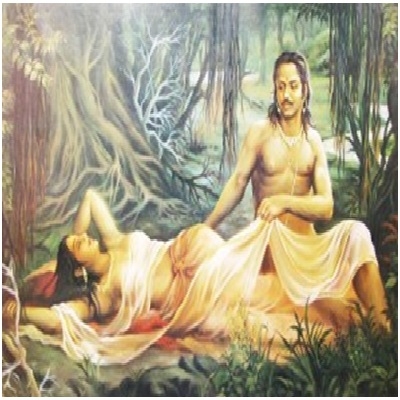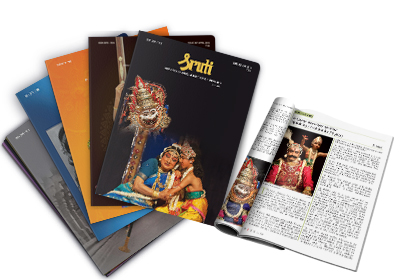
Most of us are connected to the world of art via plays, poems or stories. Some of us find solace in literature and later turn it into their creative inspiration. However, mostly we go for people who have become popular in recent times overlooking the writers who laid a solid foundation for a rich cultural legacy. Talking about Beckett or Shakespeare is in vogue, and there is nothing wrong in that, but one should also take a glance at the body of work of Indian playwrights. Mohan Rakesh and Habib Tanvir have written plays which take their cue from ancient plays written by Kalidasa. So, in a way, to understand the writing of Rakesh or Tanvir in entirety, one needs to go back to Kalidasa.
The original plays were in Sanskrit, but several scholars have translated them in English, Hindi and other Indian languages, so the problem of not understanding the tone is not there. The translated plays can be a re-interpretation of the original but most of the metaphors and symbols have been kept intact by the translators. I am only talking about known scholars because Kalidasa has been translated by some publishing companies as well, and those books are not up to the mark.
Kalidasa finds a place in folklores and anecdotes. His influence on traditions and culture is very evident, but mostly we miss out on those things because of our ignorance towards Kalidasa’s work.
Interestingly, you don’t need to go in detail for catching the essence of his literature as they are stories which have been told to us by our forefathers in a simpler manner. You will immediately get the clue and this will increase your fun several times. You will feel involved in the proceedings.
Mahakavi Kalidasa lived somewhere close to Ujjain and Kalinga and gave us the historical account of India during 5th century AD.
His famous (Not important) books include Abhijnanasakuntalam, Raghuvamsam, Meghadutam, Vikramorvasiyam and Kumarasambhavam. Mohan Rakesh was so much influenced by Kalidasa’s life that he wrote a whole book Ashadh Ka Ek Din on him. It’s an account of Kalidasa’s love life and the pattern of his thought process.
I am particularly amazed by Mahakavi’s virile imagination in Ritusamhara. It’s a long poem which describes the value of six seasons through two lovers. It’s epic in every sense. Its simplicity lies in its complex structure. The rhythm, tune and texture of lovelorn verses will make you crave for empathy.
William Shakespeare’s plays have some striking similarities with Kalidasa’s. Their premises are different, but the classical narrative structure is similar. Due to the fact that Shakespeare’s symbols can be traced as he is not as ancient as Kalidasa, he became more read and understood. But, Kalidasa’s work isn’t lesser than him in importance, especially when history is in constant search of concrete proofs.
He says in Raghuvamsam, “The purity of gold can be tested only when it is put through the fire.” Haven’t we heard several similar statements without crediting the original?
He also says, “Yesterday is but a dream. Tomorrow is only a vision. But, today well lived makes every yesterday a dream of happiness, and every tomorrow a vision of hope.” Are you still not amused with the depth of his philosophy?
His imprints can be found on several other classics as well. He was there and will be there for many more centuries, so you decide whether you want to know him or not. He has done what he had to, but wouldn’t you like to seek benefits from his labour?
© Mytheatrecafe


